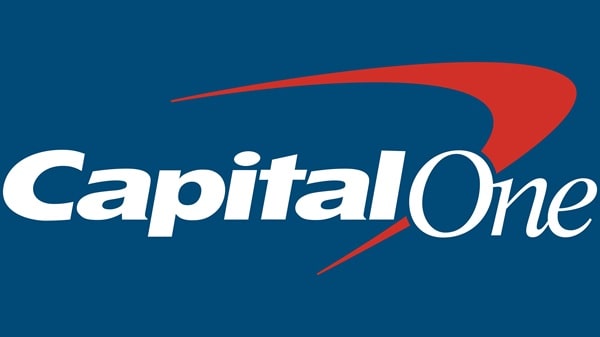The Capital One data breach settlement is still considered as one of the most prodigious legal reactions to a cyberattack in U.S. history. A huge breach of sensitive financial and personal data of millions of Americans occurred in 2019, which risked the identity theft of many individuals. In the settlement they tried to give the affected people compensation, security and reassurance of their identity. As of 2025, the majority of the claim processes have elapsed, though current services of protection remain accessible to many of the settlement members.
Understanding the Capital One Data Breach

In July 2019, Capital One, a United States based company and one of the largest banks confirmed that a computer hacker had compromised and accessed its systems. The personal data of over 98 million individuals were lacking in this cyberattack. The stolen information contained names, addresses, and dates of birth, credit scores, and the social security and bank accounts numbers.
The event cast serious doubts on the cloud data security and whether the bank performed the due diligence of securing the information of its customers. Having been sued several times, Capital One settled the claim in a 190 million-dollar settlement to their class action suit compensating the affected consumers.
What the Settlement Offers
The settlement of the capital one data breach offers a number of advantages to the users impacted by the 2019 cyberattack. Although the filing of claims was formally completed as of September 30, 2022, additional support services available to the members of the settlement class are up to date February 13, 2028.
1. Identity Defense Services
Pango, an online-based U.S. based identity protection company, offers its free Identity Defense Services to eligible consumers. These services cover some dark web protection, lost wallet, and identity theft insurance up to $1 million. They also have constant notices of suspicious actions in matters concerning individual information including Social Security numbers, driving licences, and bank accounts. You can also be enrolled on these services up to 2028 prior to termination of the program even when you did not file a claim.
2. Free Restoration Services
Restoration Services will be available to every affected customer whether or not they subscribed to identity defense. The services assist the victims in reclaiming identity theft. Experts would help in challenging fraud accounts, correcting credit report errors, and notifying the police. This assistance is also free and should significantly help you to regain your financial stability.
3. Compensation for Losses
The members of the classes could claim reimbursement during the first period of claims concerning such out-of-pocket losses as an unsanctioned transaction, credit monitoring expenses, or time needed to deal with identity theft issues. The payments started in the later decades of 2023 and were estimated to take till September 2024.
Although the matter of reissue of payment and new claims cannot be repeated, currently existing value protection services to the consumers.
Why This Settlement Matters
The Capital one data breach settlement underscores the importance of cybersecurity and responsibilities in the current banking digital landscape. Cyberattack is more frequent and advanced involving all financial institutions and their customers. This settlement failed to only pay up victims but also to remind companies of the need to ensure they protect personal data.
The case also preceded a significant case. It revealed that big financial institutions can exist in reality with real repercussions in the failings of its protection of sensitive information. To average Americans, it has underscored the importance of keeping constant scrutiny of credit reports, changing passwords regularly and employing sound identity protection services.
How to Access Your Benefits
You are eligible to receive continued protection in case you did not use the benefits you were impacted through the breach. To create an enrollment code and make a free identity protection pension, members of the settlement are able to contact Pango at 833-317-4821. The restoration services will be offered to all members whose name is covered under the settlement but this will also apply whether they have filed previously or not.
To enroll, visit the official Pango enrollment website at https://app.identitydefense.com/enrollment/activate/cap1. You will get U.S. based assistance in the hands of people who completely understand identity theft recovery and prevention.
Lessons from the Capital One Case
The breach acts as a publicity lesson to the consumers and the corporations. For consumers, it instigates the necessity of ensuring the protection of personal information and being proactive with regard to Internet security. For companies, it emphasizes a necessity to invest in safe cloud and frequent security audits, together with training of employees to avoid such incidents.
The government in the U.S. is still working to strengthen laws regarding privacy of information and notification of breaches yet the responsibility falls on individuals to achieve information safety. Having a password with a lot of numbers, two-Factor authentications, and keeping a watch on your credit reports can greatly make clear that you do not get victimized.
Final Thoughts
The Capital One data breach settlement does not only reflect a financial compensation tool, but it is rather a symbol of responsibility and advances in consumer data security. Although the process of claim is over, long-term valuable benefits of the business customized identity protection and recovery are conferred to victims who have become targets of the activity.
To the victims of the 2019 data breach, be sure that you utilize these free services before they expire in 2028. They are capable of keeping you secured against identity theft and keep your money safe in a more digitalized world.
Educating yourself and keeping alert of your rights will allow you to use this bad experience as a chance to make your personal security much harder to compromise later.